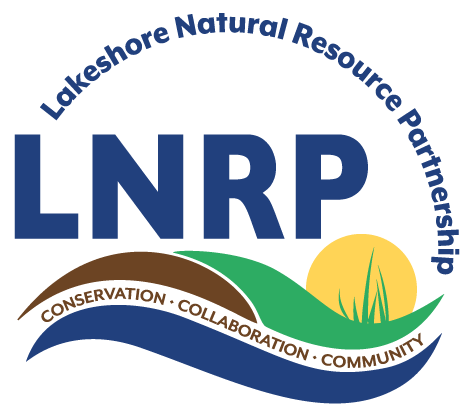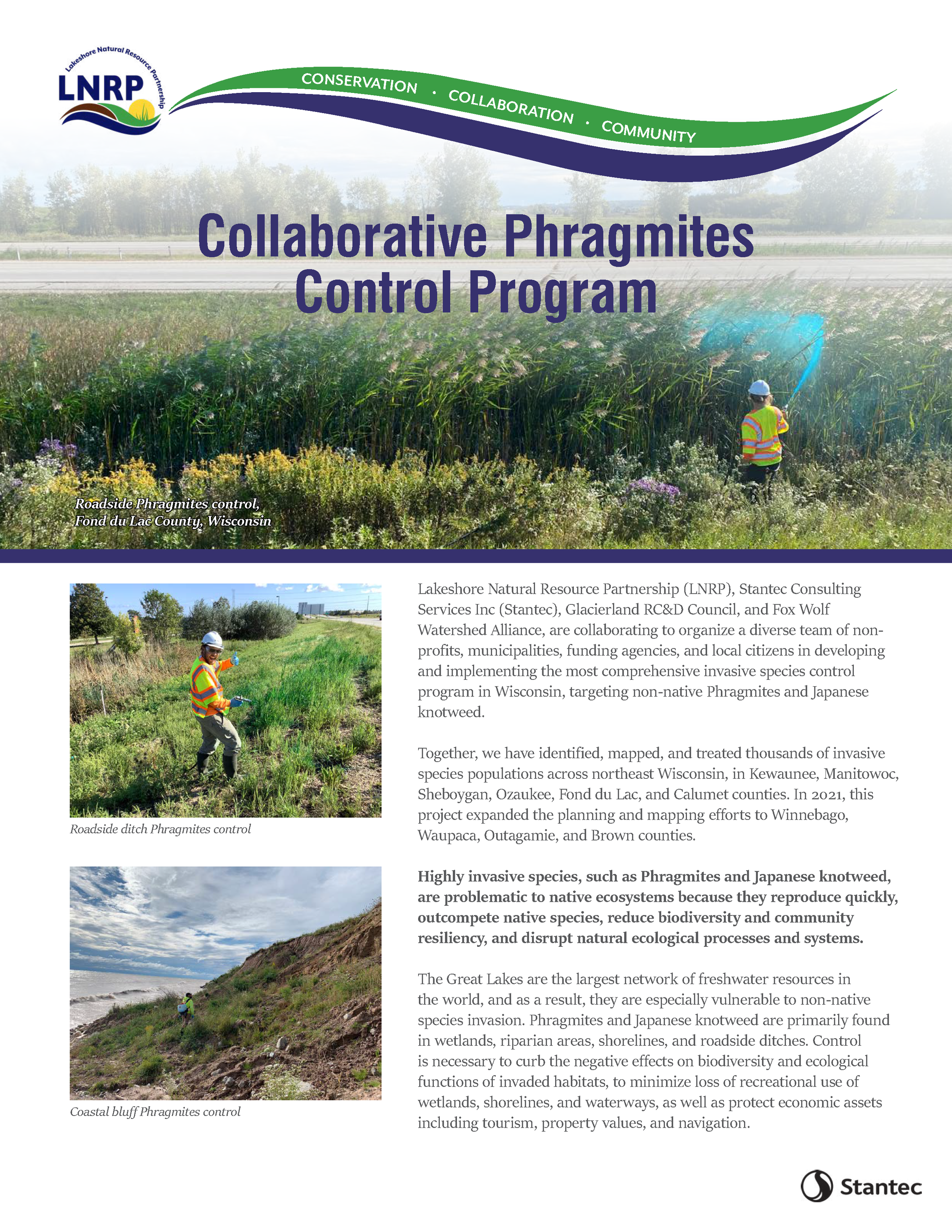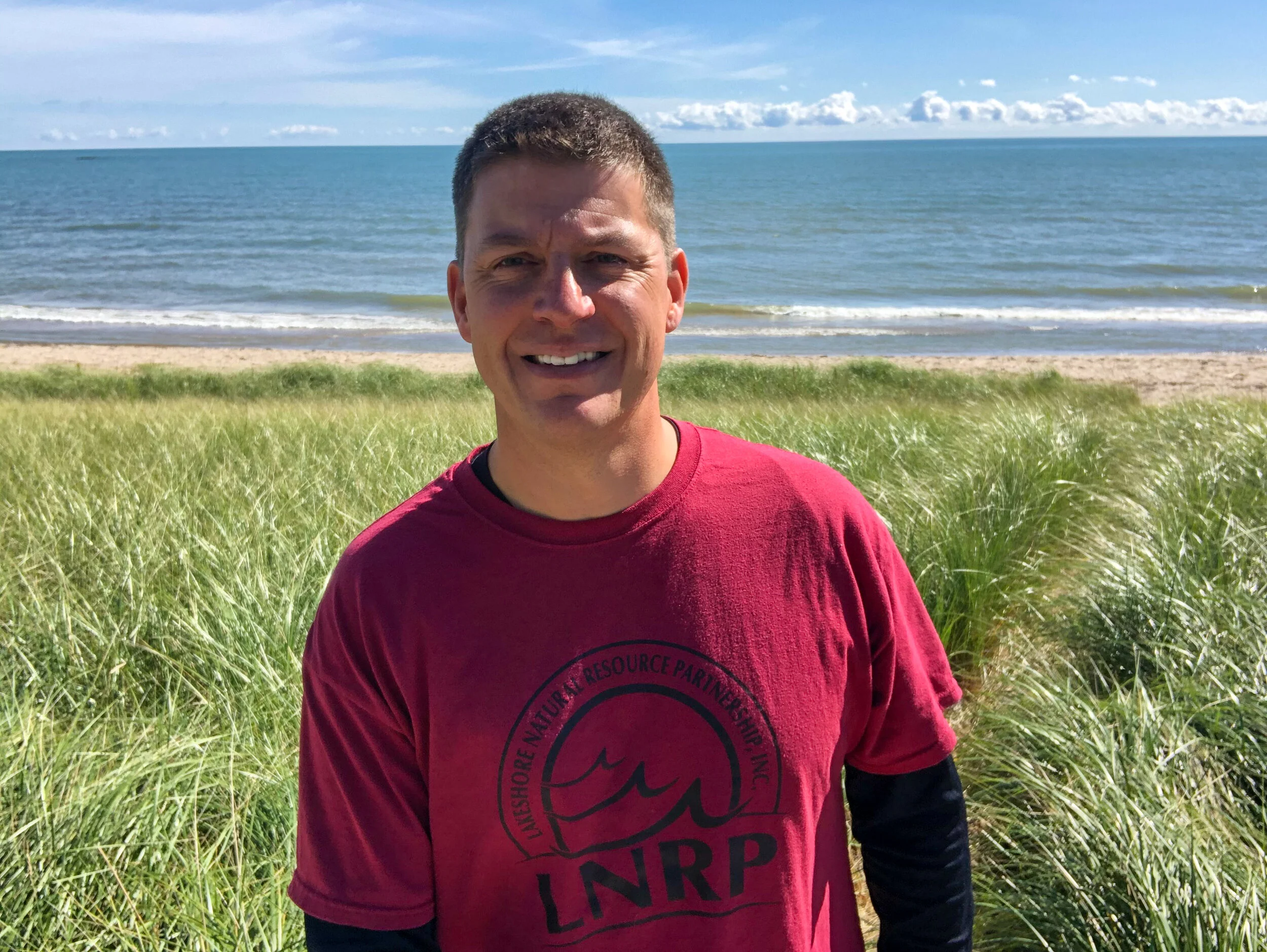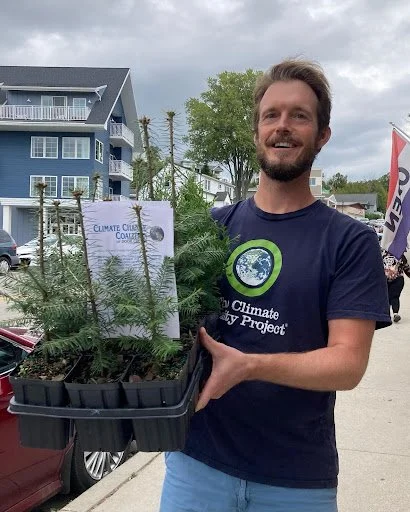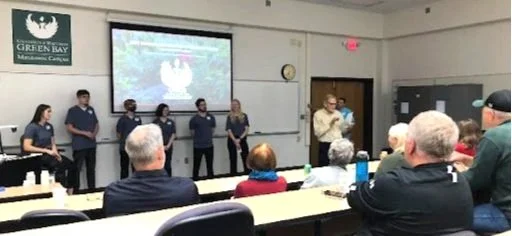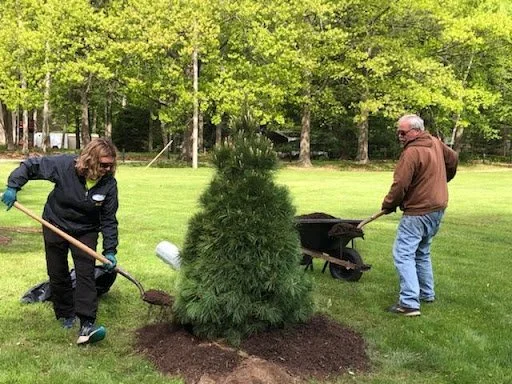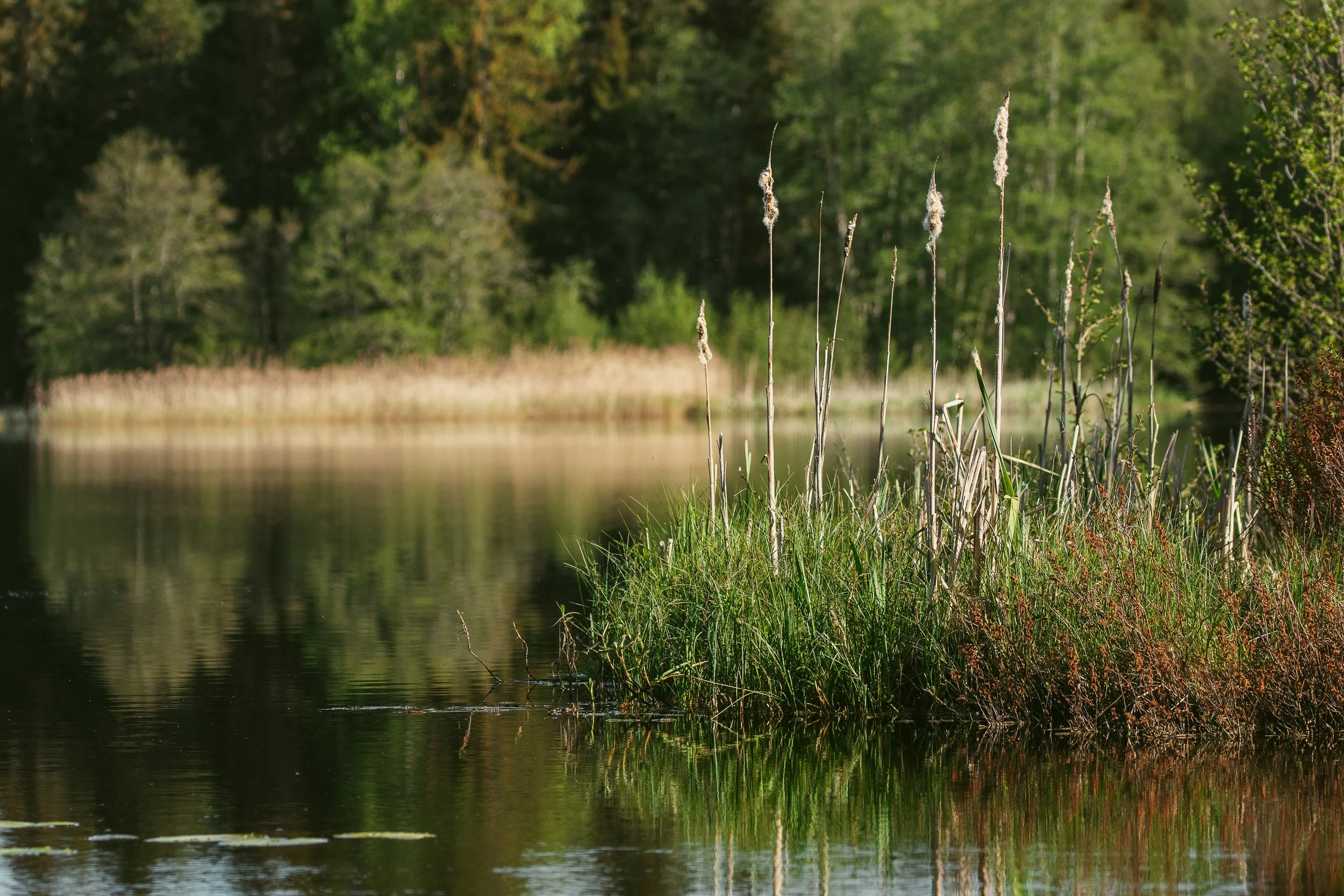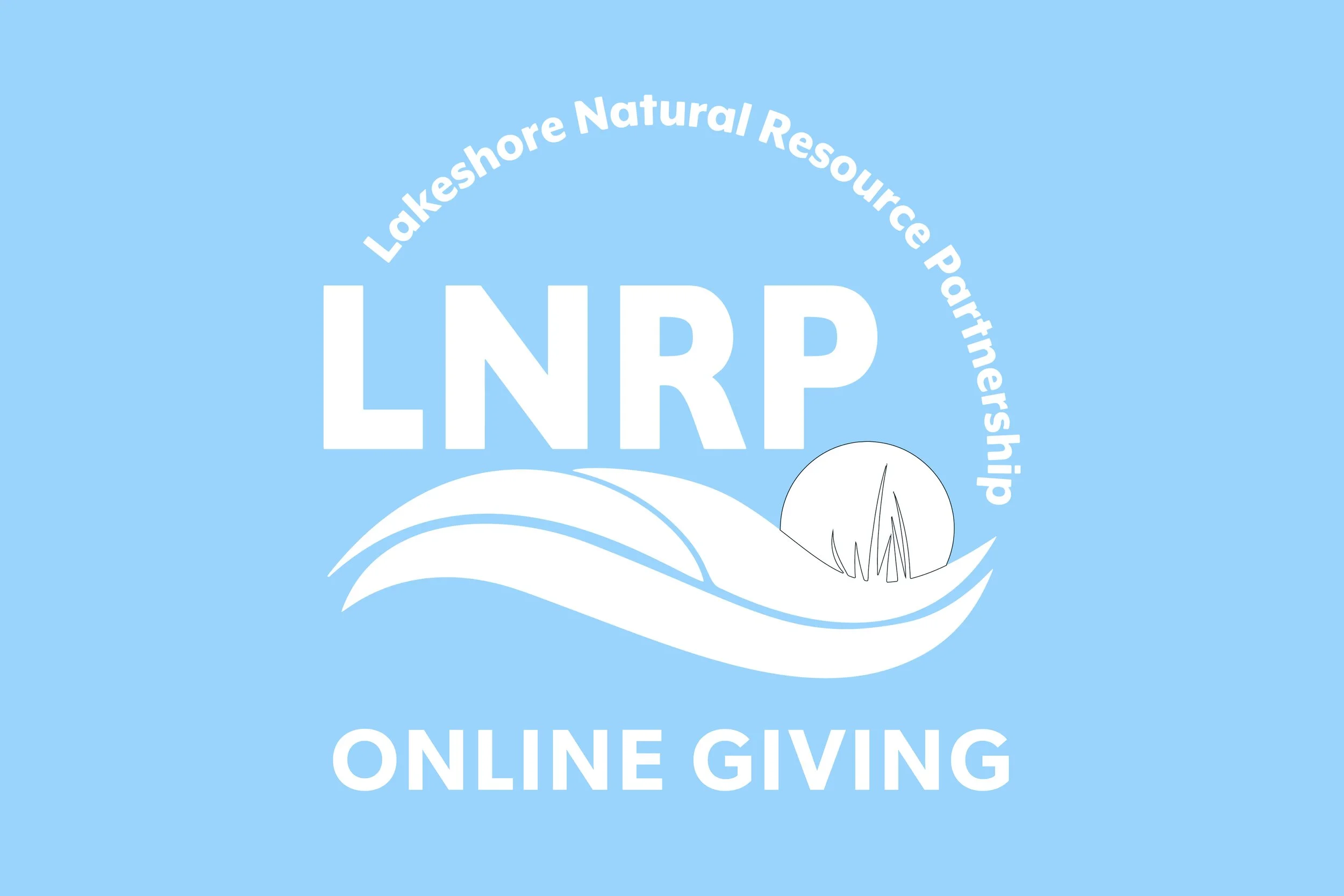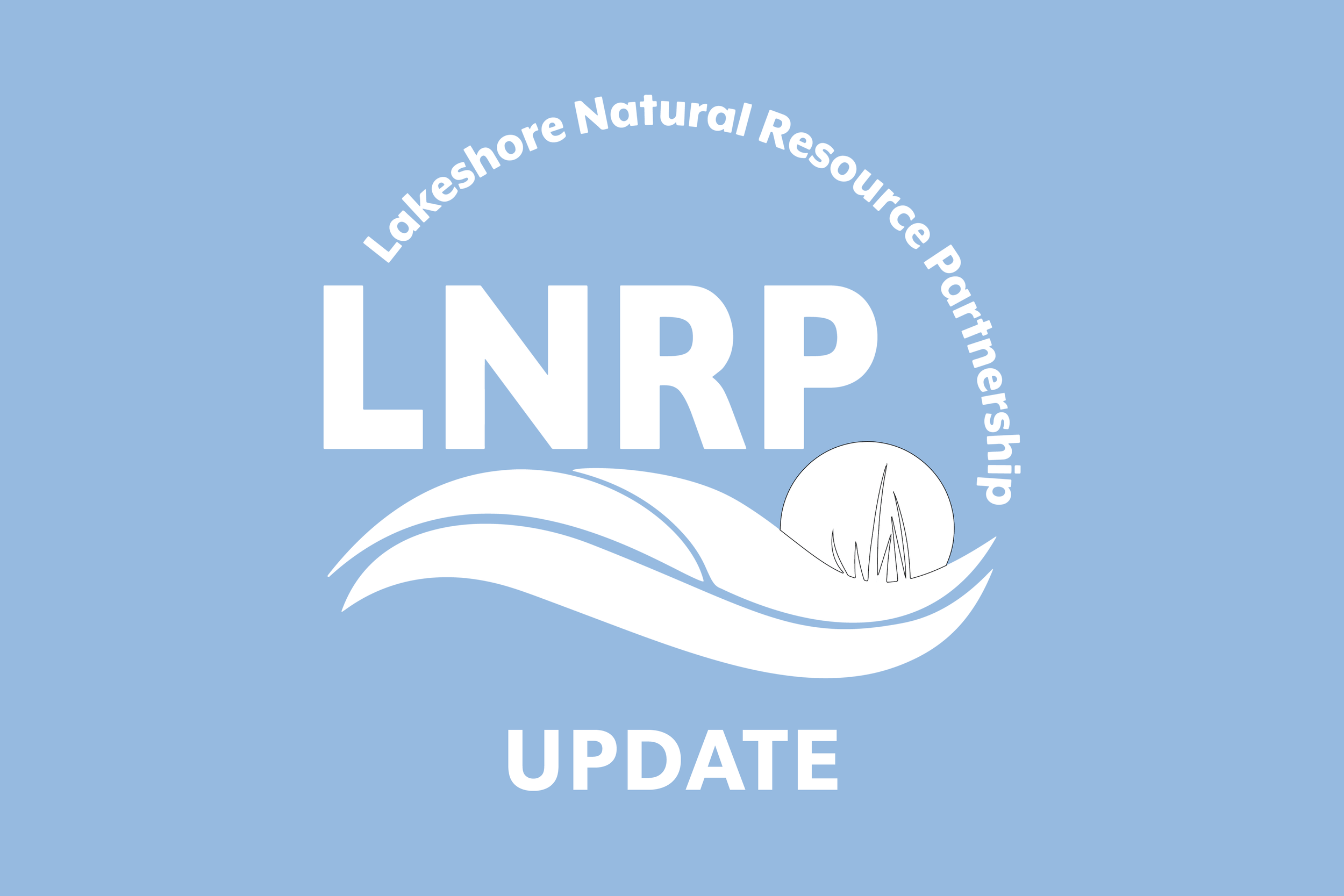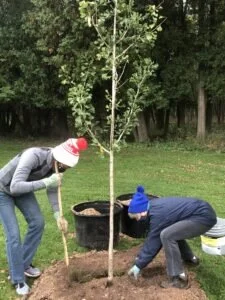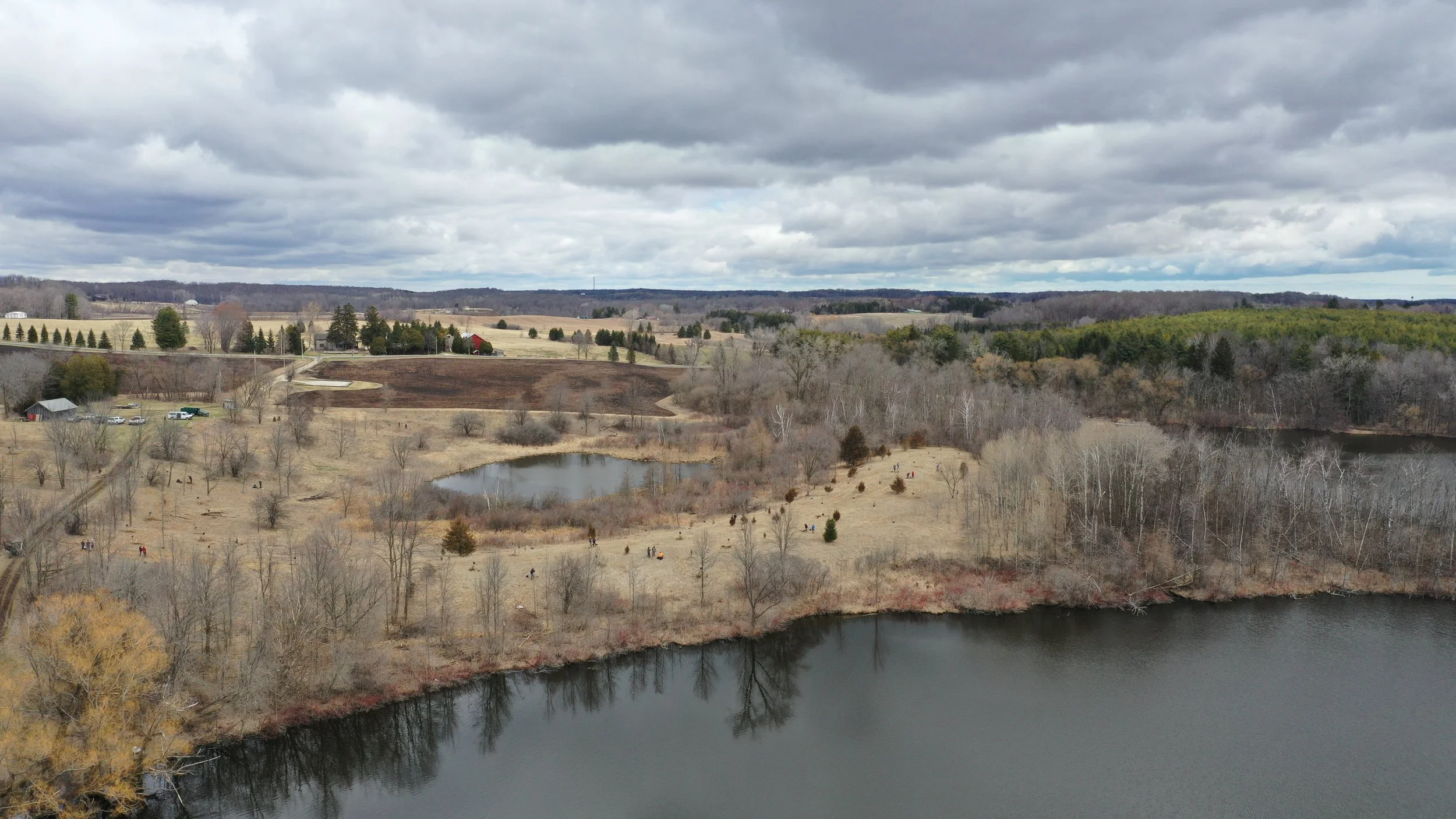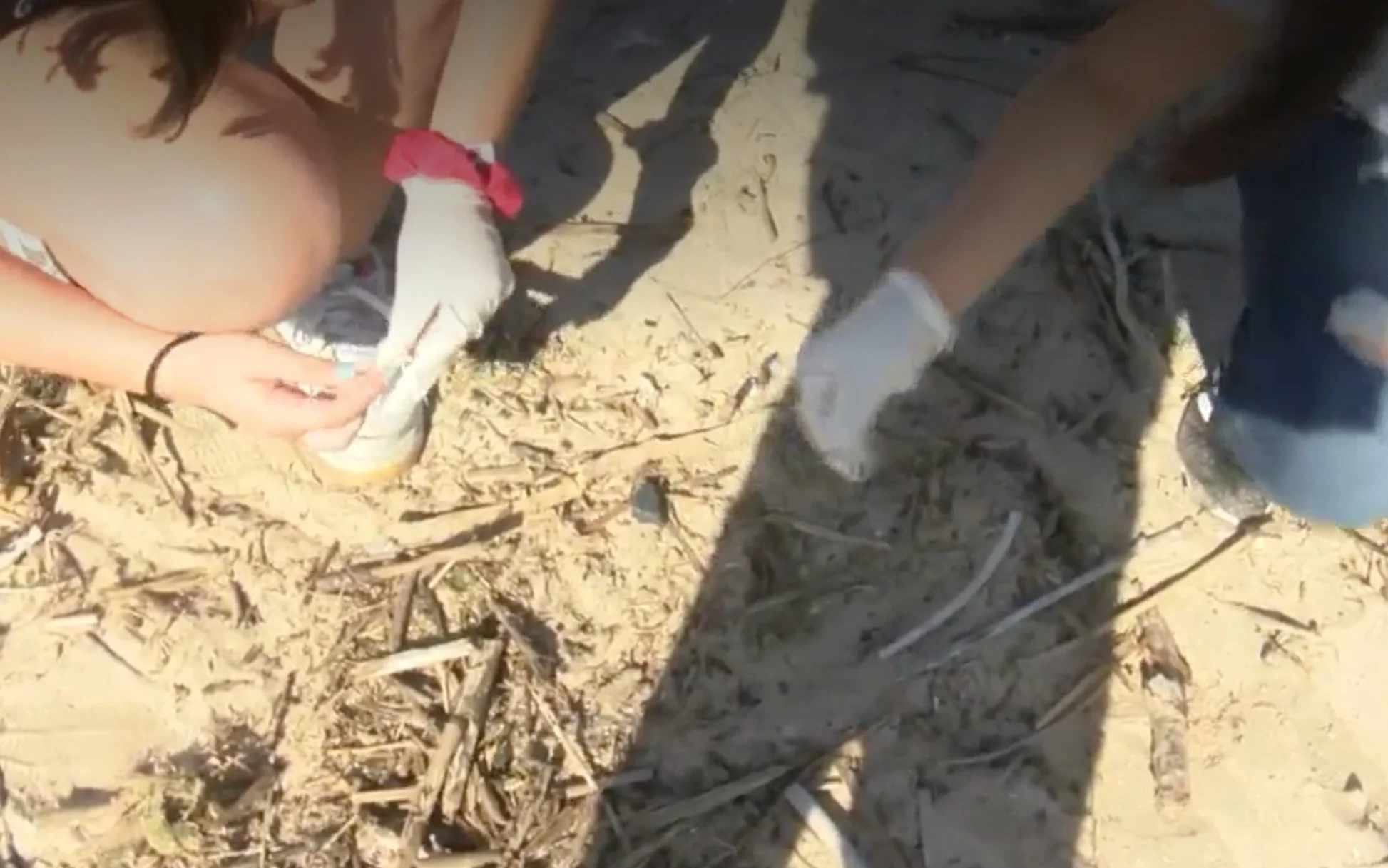The Lakeshore Natural Resource Partnership (LNRP), Stantec, and the University of Wisconsin – Stevens Point (UWSP) are collaborating to improve water quality in Carstens Lake and Lake Michigan. A study identified high phosphorus levels in Carstens Lake, leading to the construction of an offline sedimentation basin and the use of UWSP's sorption technology to reduce contamination. The project aims to protect the lakes, create wildlife habitat, and diversify land use. Construction is set to begin in fall 2023 with two years of monitoring. LNRP also plans to enhance a degraded wetland area for additional water quality benefits and habitat value.
Read MoreLNRP and Stantec Consulting Services have created project summaries showcasing collaborative initiatives in the Lakeshore Basin. The summaries cover projects funded by the US Forest Service and the Wildlife Conservation Society's Climate Adaptation Fund, a regional Collaborative Phragmites Control Program, and the Amsterdam Dunes Preservation Area Habitat Restoration project. These projects aim to enhance coastal ecosystems, control invasive species, and protect critical habitats for migratory birds in the Lakeshore Basin.
Project summaries were developed to showcase several collaborative projects in the Lakeshore Basin.
The Friends of North Point (FONP) concluded their winter speaker series, featuring three speakers in 2023 focusing on native plants and plant management. The first speaker, Jason Granberg from the Wisconsin DNR, discussed the identification and control of invasive species, emphasizing the importance of early detection. Dr. Warren Porter from UW-Madison addressed the effects of pesticide use on human reproductive health and development, highlighting the potential risks associated with common pesticides. The final speaker, Randy Powers from Prairie Future Seed Company, discussed sustainable practices for creating native landscapes on properties, showcasing the benefits of native plant gardens.
Read MoreThe “You” is the most critical piece of that milestone anniversary celebration. I know that feels like an old adage, but it is so very true – you are talented, inspired, impassioned, enthusiastic, generous people who make LNRP the success it has been these past two decades. Our LNRP Team is genuinely grateful for each and every one of you. We are privileged to collaborate with you on our community-based land and water conservation work – and we thank you.
Read MoreIn July, we welcomed Jeff Lutsey to the LNRP team as Executive Director of the Climate Change Coalition of Door County. Lutsey brings a wealth of climate- and environment-related experience to the coalition. He is no stranger to environmentalism in Door County as a part of the Waseda Farms family in Baileys Harbor…
Read MoreOn October 12th, at the University of Wisconsin Green Bay - Manitowoc Campus, members of our lakeshore communities attended the 10th annual Lakeshore Water Summit. Open to the public, these summits highlight the important work done by undergraduate students at UWGB-Manitowoc Campus on our region’s freshwater resources.
Read MoreThe Town of Wilson received $12,361 in funding assistance from the ROOTS Community Investment Fund in 2022 to replace many of the dead ash trees in Town Parks. ROOTS or Restoration of our Trees Sheboygan is an innovative partnership between LNRP and the Sheboygan Rotary Club.
Read MoreLNRP secured funding in 2019 from the Wildlife Conservation Society’s Climate Adaptation Fund to support collective coastal resiliency efforts. Complementary to the multiple projects funded by US Forest Service grants, the effort uses tree plantings and collaborative education and outreach to address several issues that are emerging as critical challenges to the Lake Michigan coastal ecosystem.
Read MoreLakeshore Natural Resource Partnership (LNRP), a Wisconsin environmental nonprofit focused upon land and water conservation in the Lake Michigan basin, has recently led forward critical collaborative restoration work at the Sheboygan Marsh that will help protect fish and wildlife and improve recreational hunting, fishing, and bird-watching.
Read MoreAre you ready for 2022?!? Well, ready or not…it’s here. On many levels, I believe all of us are ready for the “new beginning” the new year brings, and especially since it brings with it hope for another step forward – and out of – the pandemic in which we have been living.
Read MoreOur anonymous donor has offered to contribute $1 for every $3 given to our LNRP Endowment Fund, up to a maximum contribution by this donor of $25,000.
Read MorePlease join us and support us in the critical community-based conservation work we do with a year-end gift (or new year gift!). Your gift really is your impact, because in giving, you are doing the work along with us! In short, YOU.
Read MoreIn late 2021, our LNRP Team welcomed several new board directors to assist in guiding the organization's mission. Please join us in welcoming them to the team!
Read MoreIn response to the challenge of climate change, LNRP launched the Coastal Resiliency Community Impact Project (CRCIP) in late 2020 and spent 2021 engaging Lake Michigan’s coastal communities. We believe this Coastal Resiliency opportunity will prove valuable resources to our municipal partners working to identify, plan, fund, and execute relevant community projects.
Read MoreLake Michigan coastal and riparian communities have been significantly impacted by land-use changes; therefore, restoring these unique ecosystems and reducing impacts from land conversion, erosion, pollution, and fragmentation are critical. Forests along the Lake Michigan coastline absorb severe impacts from a changing climate, including intense challenges to birds and wildlife and changes in weather patterns. LNRP will address climate impacts such as warmer, longer growing seasons, milder winters, increased frequency of heavy precipitation, higher fire risk, and the amplification of forest health stressors such as pests and invasive species.
Read MoreManagement techniques such as prescribed fire, removal and control of invasive species, and planting native trees, shrubs, and herbs are needed to maintain and enhance ecological health. The establishment of diverse native vegetation and year-round cover on this Property will result in increased foraging and nesting habitat for native wildlife species.
Read MoreTransformative restoration requires time, passion, patience, vision, and yes, resources. LNRP’s Executive Director, Tom Mlada, shares a very personal example.
Read MoreAre you ready for 2022?!? Well, ready or not…it’s here. On many levels, I believe all of us are ready for the “new beginning” the new year brings, and especially since it brings with it hope for another step forward – and out of – the pandemic in which we have been living.
Read MoreOn Saturday, September 18th and Sunday, September 19th almost 75 volunteers descended on five separate City of Manitowoc beaches for one of our many annual Beach Clean-ups. These hands-on activities (literally) allow members of the general public to take part in an important seasonal ritual…
Read MoreLike many navigable rivers in our region, the Sheboygan River has seen a lot of changes over the decades. One of the more noticeable and positive changes, along with gradual improvements to water quality and riparian habitats, has to do with more and more canoers, kayakers, and paddlers now using the river as a source of recreation, inspiration, and exercise…
Read More